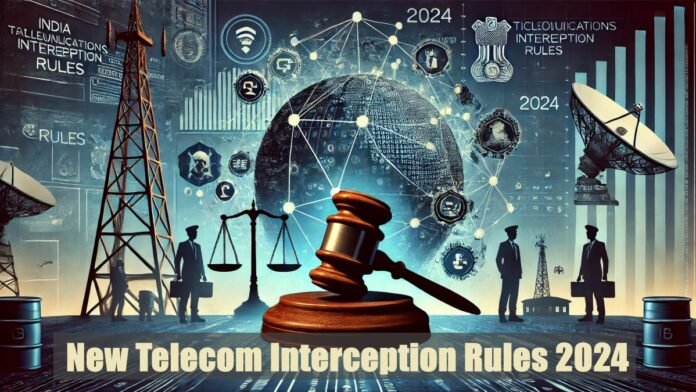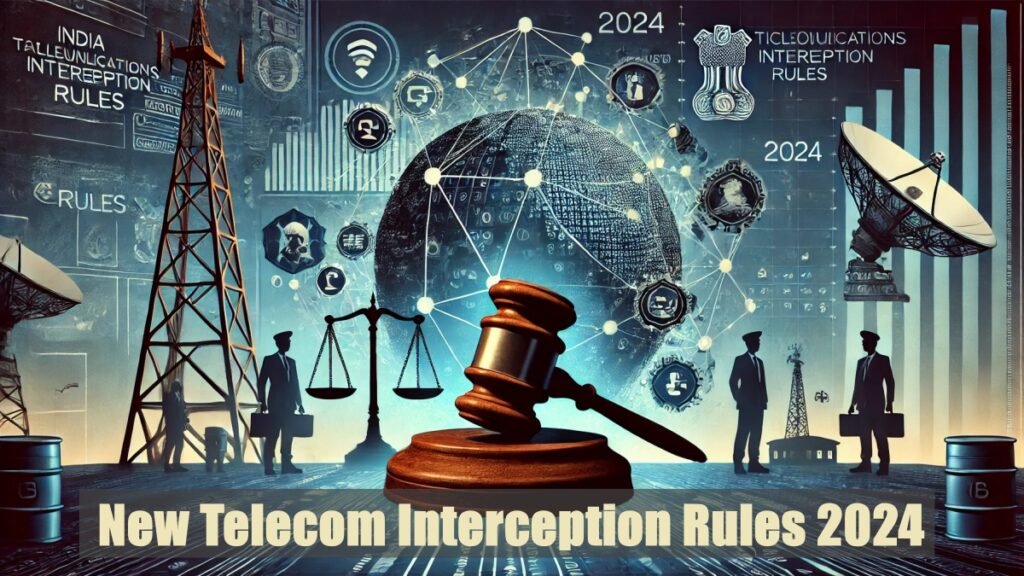
New Delhi: The Union government has officially notified the Telecommunications (Procedures and Safeguards for Lawful Interception of Messages) Rules, 2024, introducing updated protocols for law enforcement and security agencies to intercept messages for specific purposes and timeframes. These rules, resembling call interception procedures, aim to strengthen national security but have raised concerns about the potential impact on citizens’ Right to Privacy.
Key Highlights of the New Rules
- Scope and Authority for Interception
The rules empower the competent authority Union Home Secretary at the central level and Chief Secretaries in states to authorize interception orders. In urgent situations, senior officials such as Joint Secretaries or Inspector Generals can issue interim orders, subject to confirmation by the competent authority within seven days. If no confirmation is received, the interception must cease, and any collected data cannot be used as evidence. - Duration and Oversight
Interception orders can be issued for up to six months, with strict reporting and accountability requirements. Agencies must provide detailed particulars about the individual targeted, the authorized officer, and a timeline for data destruction. The rules mandate bi-monthly reports listing all interception orders issued, ensuring continuous monitoring. - Review Mechanism
A high-level committee chaired by the Cabinet Secretary will oversee interceptions at the national level, along with the Secretaries of Legal Affairs and Telecommunications. State governments are required to establish similar committees, headed by their Chief Secretaries and supported by legal and administrative officials. - Telecom Companies Held Accountable
The new rules place significant responsibility on telecommunication providers. Any unauthorized interception involving their employees could lead to penalties, reinforcing the importance of compliance.
Debate over Privacy Concerns
The notification is likely to reignite debates about the balance between national security and the Right to Privacy. India has witnessed past controversies involving unauthorized surveillance, sparking fears about the misuse of such powers. Privacy advocates argue that while interception may be necessary for law enforcement, robust safeguards are essential to prevent abuse.
Public Consultation Process
In a bid to ensure transparency, the government invited public feedback on the draft rules on August 28, 2024. However, the final notification reflects the administration’s determination to enhance security measures amid rising cyber threats and sophisticated communication technologies.
Implications of the Rules
The rules have far-reaching implications for both individuals and organizations:
- For Citizens: They introduce a framework that could potentially infringe on privacy if not carefully implemented.
- For Telecom Entities: They face stricter accountability measures, requiring vigilance over employees and compliance with interception protocols.
- For Law Enforcement: The rules provide clarity and structure but demand meticulous adherence to legal safeguards to avoid misuse.

Balancing Security and Freedom
The 2024 Telecom Interception Rules come at a time when technological advancements have outpaced existing legal frameworks, necessitating updated regulations. While the rules aim to ensure national security, their effectiveness will depend on transparent implementation, stringent oversight, and a commitment to upholding citizens’ fundamental rights.
As India enters an era of heightened digital surveillance, the challenge lies in ensuring that security measures do not come at the expense of personal freedoms. This delicate balance will likely define the success of these new regulations.










































